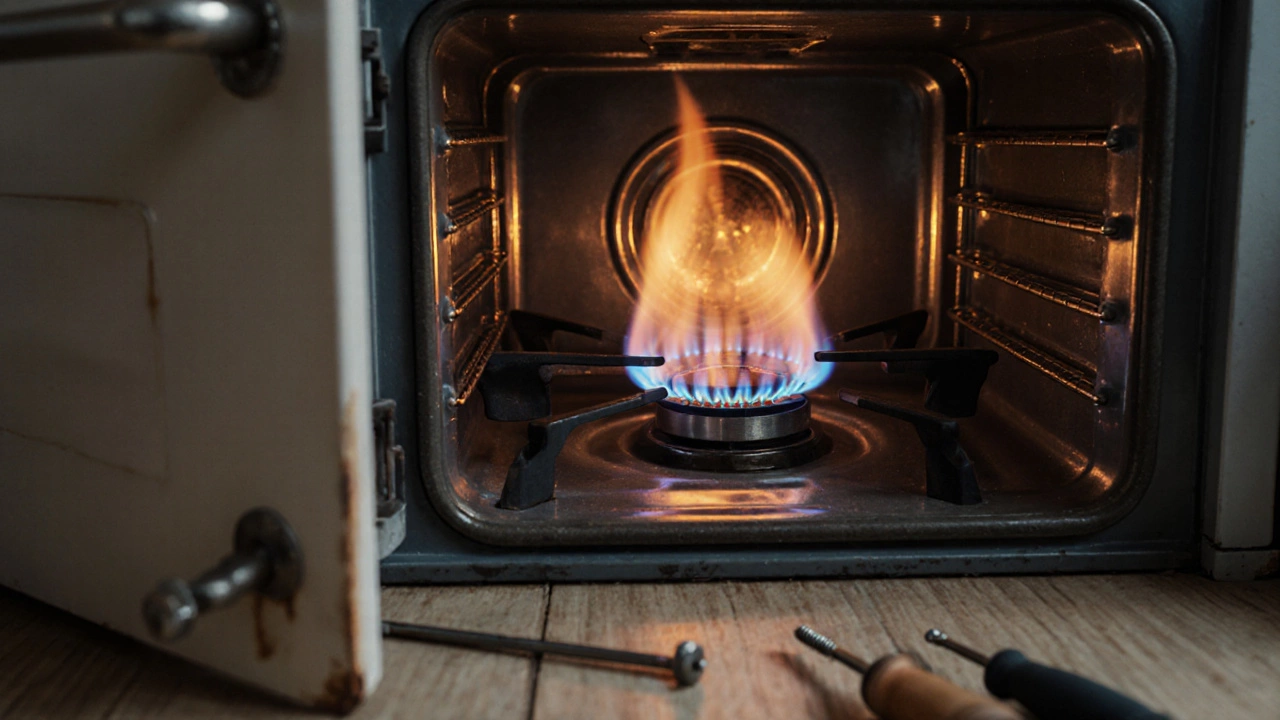Gas Oven Service: What You Need to Know Before Calling a Technician
When your gas oven, a kitchen appliance that uses natural gas or propane to generate heat for cooking. Also known as gas range, it stops heating properly or smells like gas, it’s not just inconvenient—it’s a safety issue. Unlike electric ovens, gas ovens rely on delicate gas lines, burners, and ignition systems that require certified technicians to handle. A faulty gas valve, clogged burner, or cracked heat exchanger can lead to carbon monoxide leaks, uneven cooking, or even fire. Regular gas oven service, a professional inspection and maintenance routine designed to keep gas appliances running safely and efficiently isn’t optional. It’s how you protect your home and family.
Many people think if the oven lights up, it’s fine. But that’s like saying your car is safe because the engine starts. A gas oven can still have hidden problems: a weak flame, delayed ignition, or a thermocouple that’s failing slowly. These aren’t always obvious until something goes wrong. That’s why most manufacturers recommend an annual gas appliance safety check, a certified inspection that verifies gas flow, combustion, venting, and leak integrity. It’s not just about fixing what’s broken—it’s about catching what’s about to break. And if you’ve got an older model, sediment buildup in the gas lines or worn-out seals can make even a well-maintained oven inefficient. You’ll notice it in longer preheat times, uneven baking, or higher gas bills.
Who can do this? Not just any handyman. Only a technician certified for gas appliance repair, the specialized skill of diagnosing and fixing gas-powered home appliances under safety regulations should touch your oven. In the UK, that means someone registered with Gas Safe. They’ll check the gas pressure, clean the burners, test the flame sensor, and inspect the flue for blockages. They won’t just turn it on and say it works—they’ll measure airflow, check for carbon monoxide, and verify the oven shuts off correctly when it reaches temperature. Skipping this step because it seems expensive? That’s how small problems turn into costly disasters.
There’s also the matter of timing. If your gas oven is over 10 years old, it’s likely due for a full service—even if it seems fine. Parts wear out. Seals dry out. Gas lines corrode. And if you’ve noticed the flame turning yellow instead of blue, that’s a red flag. Blue flame = clean burn. Yellow flame = incomplete combustion = dangerous gases. Don’t wait for the smell of gas or the alarm to go off. Get it checked before then.
Below, you’ll find real-world guides on what to look for, when to act, and how to avoid common mistakes when your gas oven acts up. Whether you’re wondering if you can clean it yourself, how often to schedule service, or what to expect when a technician shows up, these posts give you the straight facts—no fluff, no upsells, just what matters.
Can Gas Ovens Be Repaired? What You Need to Know Before Calling a Technician
0 Comments
Gas ovens can usually be repaired for less than replacement, but only if they're under 15 years old and the issue isn't a gas leak. Learn common fixes, costs, and when to call a pro.
Read More